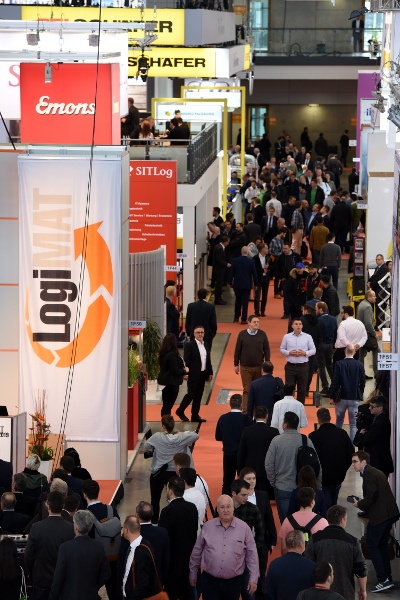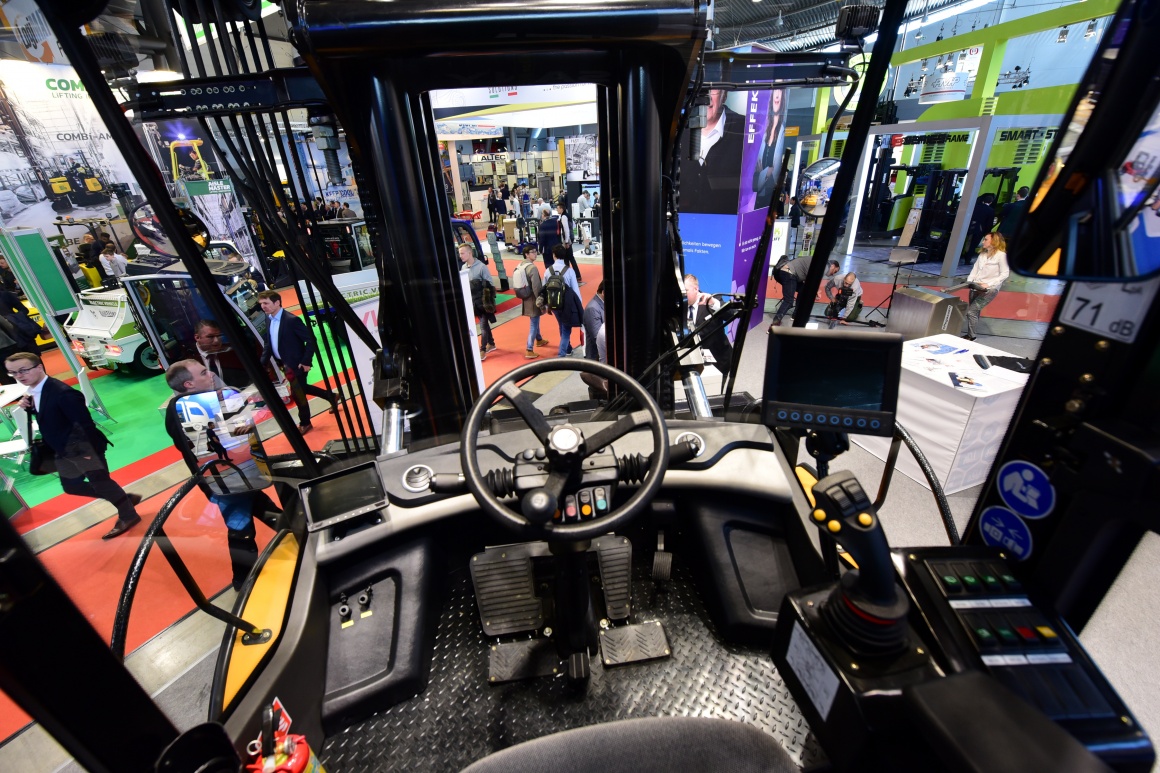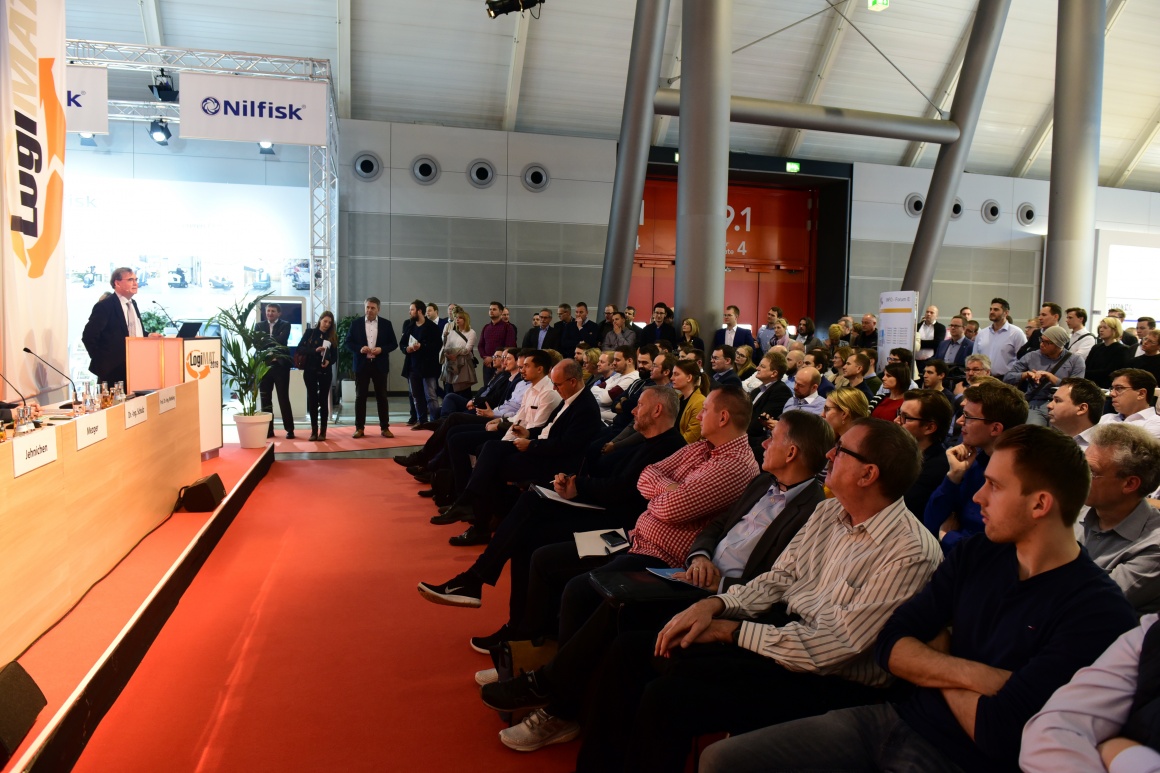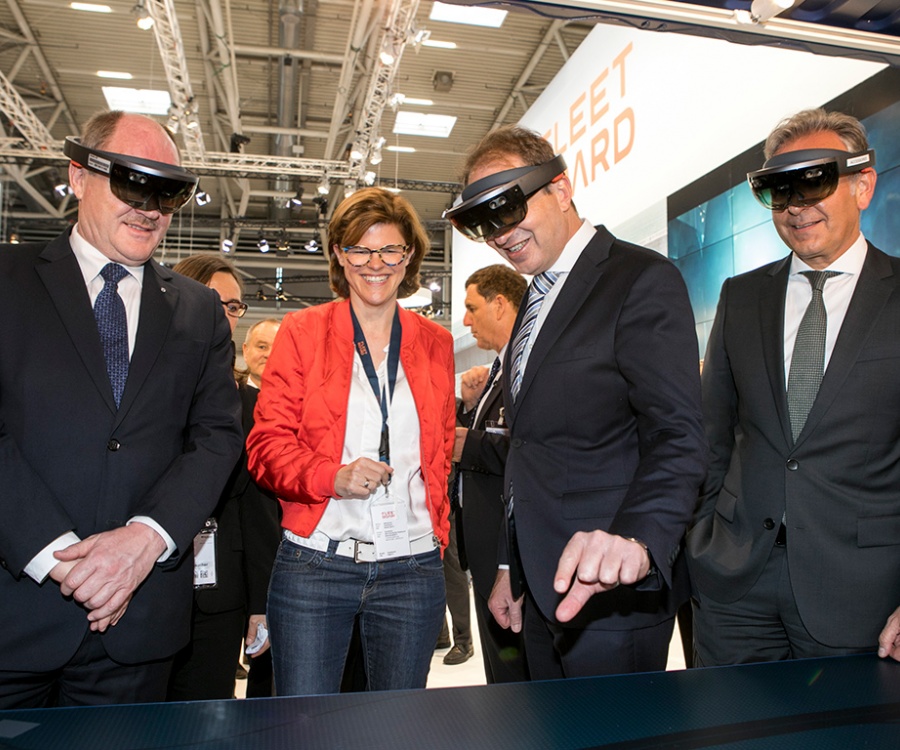LogiMAT 2020 features an accompanying program of over 30 distinguished expert forums, exciting live events, and more than 100 exhibitor presentations covering a diverse spectrum of intralogistics issues.

The unique accompanying program has been a LogiMAT mainstay from the very beginning. The 18th International Trade Show for Intralogistics Solutions and Process Management returns with its slate of forums featuring some 250 distinguished speakers. This “underscores LogiMAT’s reputation as the industry’s leading information platform,” attests Exhibition Director Michael Ruchty of event organizer EUROEXPO Messe-und Kongress-GmbH in Munich. Included are three serial live events running all day in the Tracking & Tracing Theatre (Hall 4, Booth F05), the Digital Warehouse Theatre (Hall 8, Booth A70), and the Load Securing event area (Hall 9, Booth A71). This content-rich program elevates the trade show to the level of a conference, featuring more than 30 distinguished expert forums in Halls 1, 2, 4, 6, 8, and 9 plus a program in Forum T (East Entrance Atrium) geared specifically toward the issues driving retail logistics. LogiMAT 2020 offers a comprehensive spectrum with a focus on four core themes: future technologies and AI, automated guided vehicles (AGVs), sustainability, and the human-machine interface.
The traditional IFT Day on March 11 features expert roundtables that examine the ideas and technologies shaping the future design of intralogistics in five sessions moderated by Dr. Robert Schulz, Director of the Institute for Conveyance Technology and Logistics at the University of Stuttgart (Hall 9, Forum E). Also on March 11, a look at what businesses need in order to digitally transform and “why there are no more excuses for not starting now”: with Dr. Kai-Oliver Schocke, Professor of Production Management and Logistics at the Frankfurt University of Applied Sciences (Hall 8, Forum D).
Innovation optimized
Many studies show a strong need for education when it comes to computer technology in general and AI in particular. “Silicon Economy—Do or Die” looks at where we’re headed with digital warehouses, AI, and AGV swarms: with Dr. Michael ten Hompel, Managing Institute Director of Fraunhofer IML and Chair of Materials Handling and Warehousing at TU Dortmund (March 10 in Hall 1, Forum A). “AI—Reality Check” follows immediately afterward with Dr. Philipp Gölzer, Head of Digital Production at Fraunhofer SCS and Professor at TU Nuremberg (Hall 8, Forum D). Real-world examples of data analytics in the supply chain illustrate how AI can be used to create genuine added value for optimizing processes or developing new services. AI’s current role in accelerating tasks such as picking are the subject of a panel discussion moderated by Dr. Kai Pfeiffer, Head of Industrial and Commercial Service Robots at Fraunhofer IPA Dortmund (March 10 in Hall 9, Forum E).
“Flexibility, Elasticity, Agility” explores how today’s technologies can steadily enhance flexibility and productivity for more responsive intralogistics—with a panel of practitioners moderated by Dr. Wolfgang Echelmeyer of the University of Reutlingen’s ESB Business School, a member of the Intralogistics Network in Baden-Württemberg (March 10 in Hall 2, Forum B).

“Logistics Innovations for Practice” addresses the specifics of implementing technological developments, with experts from the business and academic communities using selected examples to illustrate opportunities and show what it takes to reap the full benefit of innovation. The moderator is Dr. Rolf Jansen, Managing Director of the Association for the Promotion of Innovative Processes in Logistics (VVL) in Dortmund (March 11 in Hall 4, Forum C).
“Smart Systems for Production Optimization” explores solutions that digitally capture and analyze manual tasks in ongoing operations as well as smart systems that assist production planning and uncover the root cause of losses, with experts from the Department of Factory Planning and Production Management at Fraunhofer IPA in Stuttgart (March 11 in Hall 8, Forum D). The efficiency and productivity gains that come with smart planning and optimization are the focus of two more forums: “Warehouse Optimization is About More Than Digital Technology,” moderated by Dr. Bernd H. Kortschak, Chair of General Business Administration and Logistics at the Erfurt University of Applied Sciences (March 11 in Hall 1, Forum A); and “Logistics Excellence—Smart Processes for Sustainably Lower Costs,” moderated by Dr. Christian Jacobi, Chief Executive Officer of EffizienzCluster Management GmbH and Managing Partner of agiplan GmbH in Mülheim an der Ruhr (March 12 in Hall 1, Forum A).
Human-machine collaboration
The LogiMAT 2020 accompanying program offers no fewer than three expert forums on the benefits and challenges of AGVs. “From the AGV Developer Labs” examines how the fast 5G network is moving us much closer to the “Industry 4.0” vision of cyber-physical systems, including new strategies for AGV systems based on combined 5G data processing and transmission in the edge cloud—with Waldemar Osterhoff, Senior Consultant at Forum-FTS GmbH in Voerde (March 10 in Hall 2, Forum B).
“International Certification for AGVs—How It’s Done” speaks primarily to AGV manufacturers and integrators about solutions for penetrating international markets with robotics and AGVs, presented by testing and certification giant TÜV SÜD (March 11 in Hall 2, Forum B). “AGV Security” focuses on similar themes, with experts discussing specifications for AGVs in outdoor under the moderation of Dr. Günter Ullrich, Managing Partner of Forum-FTS GmbH in Voerde (March 12 in Hall 2, Forum B).
Auto ID and its role and options as an enabling technology for digital transformation: That’s the subject at the Tracking & Tracing Theatre (Hall 4, Booth F05) and in the two forums “Optimization of the Digital Supply Chain” (March 10 in Hall 4, Forum C) and “Automation in Logistics with Auto ID” (March 11 in Hall 4, Forum C).
Amid all the progress made in the various technologies, nothing is more important in production and logistics than the human factor. Following the opening-day keynote by data security expert and forensic IT specialist Karsten Zimmer, two other forums focus specifically on the collaborative human-machine interface. “Humans & Machines: The Future of Flexible Logistics” examines themes including how assistance systems can support people and reduce errors in the process, with an expert panel moderated by Dr. Johannes Fottner, Vice Dean and Full Professor for Logistics Engineering at the Technical University of Munich (March 10 in Hall 1, Forum A). “The Human-Technology Interaction in Picking,’ including a checklist on the ergonomics of smart glasses and real-world applications, is the focus of an expert forum led by Dr. Veronika Kretschmer, Consulting Psychology and Ergonomics at the Fraunhofer Institute for Material Flow and Logistics (IML) in Dortmund (March 12 in Hall 8, Forum D).
“German-Chinese Partnerships in Logistics” look at current developments, opportunities, and challenges in light of global trading patterns, with experts from the business and academic communities moderated by Dr. Michael Henke, Institute Director at Fraunhofer IML in Dortmund (March 12 in Hall 9, Forum E).

Digital trade processes for more sustainability
The processes of retail logistics—and the automation and digitization of trade processes—are the focus of a special series of six presentations hosted by the TradeWorld professional platform within LogiMAT in the East Entrance Atrium, Forum T: “Multichannel Strategies in B2B Commerce” is presented by Holger Seidenschwarz, Research Director at ibi research at the University of Regensburg (March 10). “New Retail Goes Digital” brings together experts to discuss the use of AI and robotics in today’s retail with Marco Atzberger, Senior Vice President at EHI Retail Institute in Cologne (March 10). “Retail Logistics 4.0” offers insights into key trends and impacts and looks ahead to the digital transformation of commercial ecosystems with moderator Dr. Volker Lange, Head of Packaging and Retail Logistics at Fraunhofer IML in Dortmund (March 11).
“Software for Logistics in Omnichannel Commerce” examines what retailers can learn from one another in streamlining information flows with the defining tools of IT—with Dr. Franz Vallée, Founder and Scientific Director at the logistics and IT consulting firm Vallée und Partner in Münster (March 11). “Rethinking the Wholesale Business Model” on the final day of LogiMAT examines forward-looking B2B business models with Gero Becker, Team Leader of Strategic Insights B2B at IFH Cologne (March 12). “Sustainable Urban Logistics” questions current trends with a group of experts moderated by Matthias Pieringer, Editor-in-Chief of LOGISTIK HEUTE at HUSS-VERLAG GmbH in Munich (March 12).
The opening day of LogiMAT 2020 features two forum events in Halls 4 and 9 that also address sustainability: “Packaging Logistics: How to Go Greener” examines the extent to which recycling, new materials, and closed loop systems create sustainability. The moderator is Sandra Lehmann, Editor of LOGISTIK HEUTE at HUSS-VERLAG GmbH in Munich (Hall 4, Forum C). “Climate-Friendly Logistics” tackles strategies for cutting emissions by 55% in ten years. The panel is moderated by Alexandra Kornacher, Head of Design for the Research Group for Optimized Value Chains (HSA_ops) at the University of Applied Sciences in Augsburg (Hall 9, Forum E).
“Thanks to our partners, who provide us with valuable input every year, we’ve managed once more to put together a fascinating accompanying program with helpful tips for attendees to make their intralogistics sustainable,” concludes LogiMAT Exhibition Directory Michael Ruchty. “A sustained added value that lingers long after the event and boosts the long-term competitive edge of exhibitors and attendees alike.”










